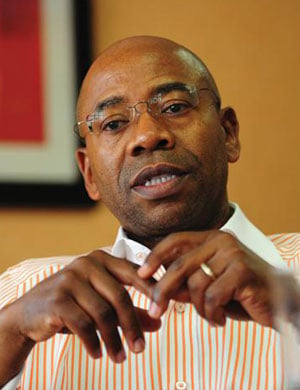
More than 21 years after the start of the democratic dispensation, the country is still far from the promised land of opportunities and justice for all. An assessment of the 2014/15 Commission for Employment Equity annual report reveals a disappointing and contradictory picture. In the top echelons of management, whites, and white males in particular, continue to dominate. The numbers cannot be worse than this.
While the African population constitutes 76.2%, only 13.6% of Africans occupy top management positions. In contrast, whites who comprise only 10.3% occupy 70% of top management positions.
In senior management, African representation increased from 18.4% to 20.5% between 2010 and 2014. The percentage of whites slightly decreased from 62.4% to 59% in the same period.
Female representation at senior management increased from 19% in 2010 to 32.1% in 2014.
The designated groups of Indians and white women seem to be progressing well.
The Black Management Forum (BMF) is, however, extremely concerned about what seems to be concerted efforts to deliberately sabotage the transformation agenda. In terms of national demographics, whites and coloureds constitute 10.3% and 10.6%, respectively, yet coloureds are underrepresented, even in the Western Cape, where they are a majority. This is unacceptable.
In the top management echelon, whites still dominate – 43% of all top management recruitment came from the white population, followed by Africans at 17.7%, and 39.5% of whites were promoted compared with 13.7% of Africans. Furthermore, 53.4% of whites were beneficiaries of skills development compared with 8.4% for Africans.
Yet black professionals in general constitute 55.3% of professionally qualified individuals. This is the pool that is supposed to be developed for senior and top management. The question is: Where is the bottleneck?
The BMF is impressed by the major inroads being made by women – 42.9% of qualified professionals are women. This is not surprising. The number of women at tertiary institutions is at the same level as that of males, and surpasses them in some instances.
The department of labour is preparing to take more than 1 000 employers to court for noncompliance. The BMF urges the government to proceed with the court cases. The government should be able to present watertight cases. The government should further argue for stiffer fines.
The BMF believes the government should use existing institutions to monitor the implementation and monitoring of the Employment Equity Act.
The BMF is further disappointed by the fact that the government only stated that more than 1 000 companies had not compiled, without naming them. Companies go to great lengths to present their images in a positive light, so naming and shaming companies that do not comply could force them to comply.
Naming and shaming companies will expose their intransigence to their employees, suppliers, shareholders and customers. South African consumers are entitled to know which companies are still frozen in backward apartheid practices.
We are, however, encouraged by the proactive steps that the government has taken to correct and fast-track transformation through the review and amendment of the Employment Equity Act, Black Economic Empowerment Act and the work that is under way with the preferential procurement policy framework.
We need to find ways of changing the hearts and minds of South Africans in their conception of employment equity and transformation. Transformation is at the centre of a fair, equitable and just society. This project is too important to be left in the hands of the private sector and government.
As such, the BMF calls on the marginalised black population to acknowledge and realise the liminality of white generosity and solidarity. It is about time that young South Africans of all races, particularly Africans, take an active interest in the transformation project.
The BMF urges black professionals to look beyond advancement in white corporate South Africa. Opportunities afforded by empowerment legislation should be seen as an enabler to total participation in the South African economy. South Africa desperately needs an innovative, assertive and fiercely competitive black entrepreneurial class.
The employment equity reports, year after year, clearly show the limits and flaws of the status quo. This is why the BMF wholeheartedly supports the black industrialists project. We urge the government to invest the necessary resources that will unlock the potential of black entrepreneurs.
The implementation of the black industrialists project should be different. We cannot afford for this project to be captured by tenderpreneurs and rent seekers. We want to see material support to individuals who are prepared to work hard, create value and contribute to the economic development of the country by addressing inequality, job creation and poverty reduction.
A critical examination of reports in the past 14 years demonstrates that South Africa will not address the inequality question soon. The racial dimension to South African inequality is particularly worrying to the BMF – it is a recipe for disaster.
The BMF is, however, optimistic that if broad-based black economic empowerment, employment equity and various charters are comprehensively and rigorously implemented and monitored, South Africa can be truly transformed.
* Mohale is president of the BMF




 Publications
Publications
 Partners
Partners








